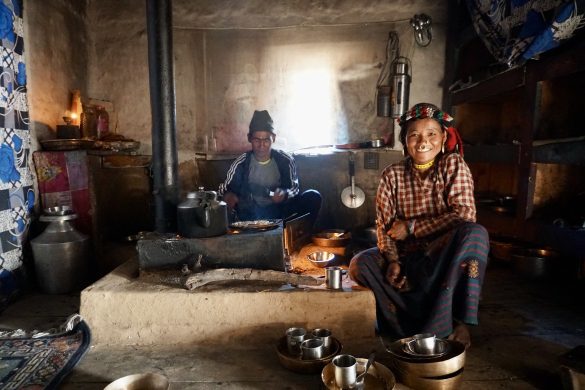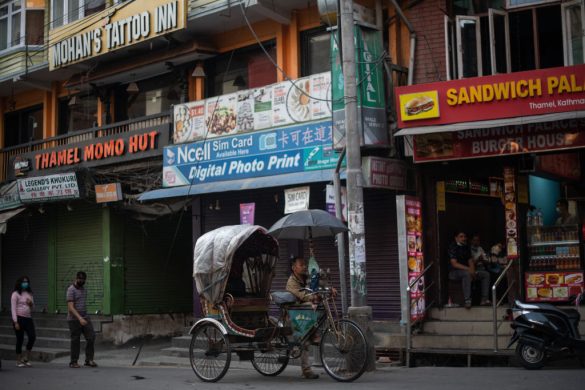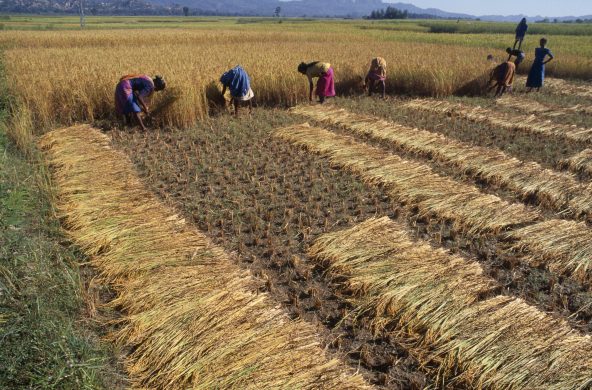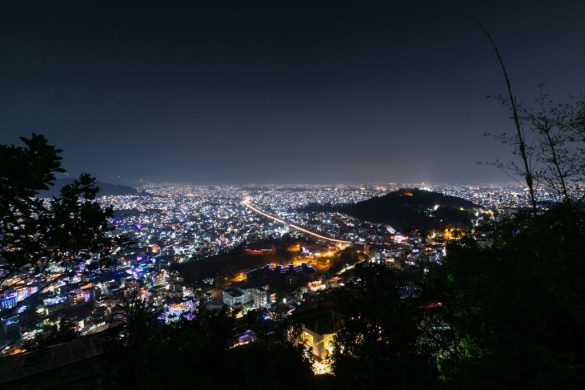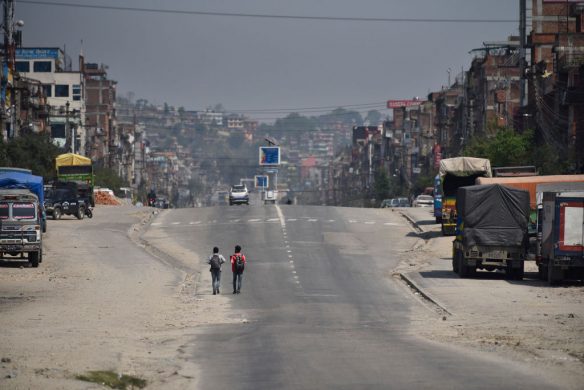COPENHAGEN, 24. september 2015 (DIPD): On 20 September 2015, President Ram Baran Yadav promulgated the much-awaited new Constitution of Nepal. A few days earlier, the elected representatives inside the Constituent Assembly had approved around 302 articles of the Constitution by an overwhelming two-third majority.
The new Constitution is, therefore, the first Constitution which has been finalized by a fully elected sovereign body; the past Constitutions of Nepal were largely a negotiated settlement between elected representatives and a powerful monarchy backed by Nepal’s army.
The New Constitution through an elected Constituent Assembly was eagerly anticipated by Nepalese people because it was part of Nepal’s recent peace process that led to an end of the ten-year armed conflict.
Læs også: I Nepal kaster de med stole (U-landsnyt.dk 02.02.2015)
For the Maoists rebels who had waged a protracted armed insurrection since 1996, a new Constitution through an elected Constituent Assembly was the bottom line for giving up their armed struggle. And it was only after the major parties agreed for an election to the Constituent Assembly that the Maoists engaged in the peace process and gave up their armed struggle and came to the democratic fold.
The new Constitution is considered as a remarkable step forward to institutionalize the recent peace process as well as multi-party democracy in Nepal.
Main Features of the New Constitution
The Constitution envisions building an equitable society based on the proportional representation of various social groups, economic prosperity, and social justice.
The state features as expressed by the statute are republicanism, federalism and secularism to be headed by the Prime Minster in the executive role and President as the ceremonial head of the state.
For women, the new Constitution guarantees 33 per cent of political representation at federal level and 40 per cent at local level. In addition, the Constitution guarantees proportional representation of women in all the state machineries.
The new Constitution has also provided women the right to pass citizenship to children even though women marrying foreigners are still deprived of the equal right as men on this issue.
JOMPOPS Engagement in the Constitution-Making Process
Inspired from Denmark on the multi-party collaboration on common issues, the Steering Committee members of Joint Mechanism for Political Party Strengthening, JOMPOPS (partnerorganisation til DIPD, red) wanted to use that practice in the constitution-making process as well.
Accordingly, JOMPOPS members organized a series of multi-party workshops on the most contentious issues of the draft Constitution including re-structuring of the state, election system and the local government.
Representatives of JOMPOPS parties which comprise of major political parties of Nepal worked together to reach an agreement on these contentious issues.
The conclusions reached in the workshops were submitted to the top leadership from the respective parties. The findings of the workshop were also shared with the President of Nepal as well as the Chairperson of the Constituent Assembly.
Even though this exercise alone did not result into an agreement among major political parties on contentious issues of the Constitution. It can be said that this exercise of multi-party cooperation definitely contributed positively in the constitution-making process as expressed by top party leadership.
JOMPOPS campaign on citizenship through mother is successful
Since one of the priority areas of JOMPOPS, has been promoting gender equality in politics, JOMPOPS members were highly concerned about the provision regarding citizenship in the draft Constitution which openly discriminated against women.
More importantly, the draft provision had reversed the achievement of the Interim Constitution which conferred women the right to pass citizenship to their children.
In this context, JOMPOPS collaborated with civil society organizations to lobby for the amendments in the draft Constitution to ensure gender equality in citizenship and equal citizenship rights for mothers.
Even though gender equality on the citizenship right could not be fully guaranteed by the new Constitution, it guarantees the right of mothers to pass citizenship to their children as long as they are not married to foreigners.
JOMPOPS members feel that the amendment in the draft provision is a significant step forward. If the provision regarding citizenship right had been passed as in the draft Constitution then it would have created many problems for women including rendering many children stateless.
Therefore, JOMPOPS members celebrate the amendment of the draft provision that they actively lobbied for.
New Challenges
The constitution finalization process, despite its advantages, has created new challenges for the functioning of JOMPOPS. Three JOMPOPS’ member parties comprising of Madhesi-based parties did not participate in the constitution finalization process.
Their differences with the major parties regarding issues of federalism were not addressed by the major parties. Moreover, they were upset by brutal suppression against Madhesi agitators and human rights violations by the state security forces.
There is still hope that the major three political parties will understand and address grievances of agitating parties including three Madhesi parties. If that happens, the new Constitution will mark a new beginning of peace and prosperity for Nepal.
Download hele den nye grundlov for Nepal (PDF, 161 sider)








